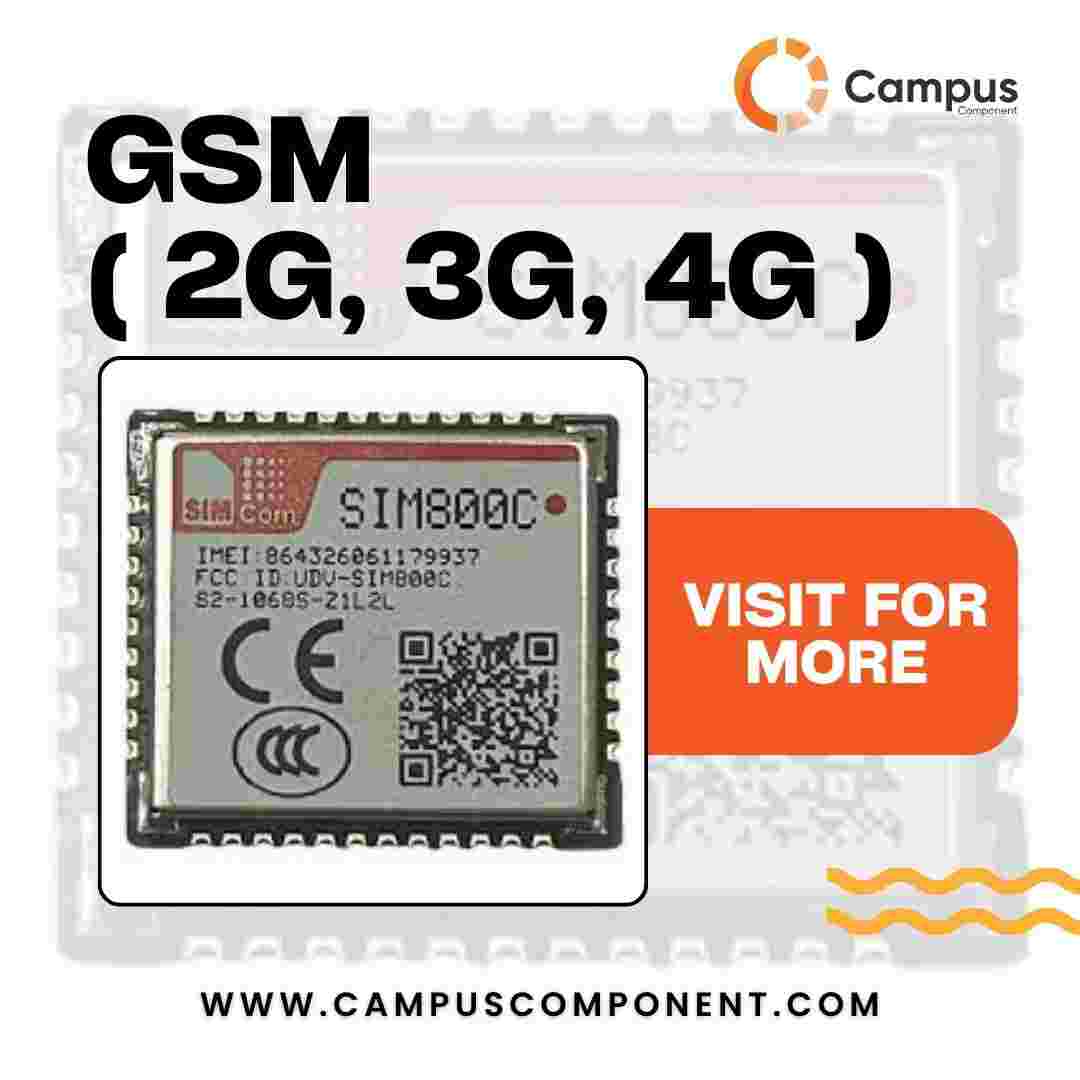In today’s rapidly advancing digital landscape, a GSM module plays a vital role in wireless communication, powering everything from IoT devices to industrial automation systems. GSM (Global System for Mobile Communications) modules are embedded systems that enable devices to communicate over a cellular network, allowing for the transmission of data and voice across vast distances. With seamless connectivity and a wide range of applications, GSM modules are essential components in many modern electronics solutions.
What is a GSM Module?
A GSM module is a hardware device that uses mobile communication technology to send and receive data via a cellular network. These modules are commonly used in embedded systems to connect various applications to the internet or other networks through GPRS (General Packet Radio Services) and SMS functionalities.
They are compatible with SIM cards and can communicate with microcontrollers or other devices using standard interfaces such as UART, SPI, or I2C. These modules help in implementing features like GPS tracking, remote data monitoring, and wireless automation, making them indispensable in IoT and M2M (machine-to-machine) applications.
Key Features of GSM Modules
-
Wide Network Compatibility: GSM modules support multiple frequency bands, ensuring global connectivity.
-
Low Power Consumption: Ideal for battery-operated systems, many modules offer sleep modes and energy-efficient operation.
-
Compact Design: Designed to fit seamlessly into small and medium-sized embedded systems.
-
Ease of Integration: Simple to integrate with microcontrollers, making them developer-friendly.
-
Support for AT Commands: Most modules use AT commands for configuration and communication, which are easy to implement.
Applications of GSM Modules
GSM modules are used across a variety of industries and applications:
-
IoT Devices: Enable smart devices to communicate with cloud platforms and other connected devices.
-
Automated Meter Reading (AMR): Used in utility meters to transmit readings remotely.
-
Vehicle Tracking Systems: Facilitate GPS tracking and location-based services.
-
Security Systems: Support real-time alerts and remote monitoring.
-
Home Automation: Control smart appliances and systems using wireless communication.
Choosing the Right GSM Module
When selecting a GSM module, consider factors such as network compatibility (2G, 3G, 4G), power consumption, size, and data transfer speed. For high-speed applications, a 3G GSM module may offer better performance, while basic connectivity can be achieved with a 2G variant.
For example, developers building real-time applications might benefit from using 3G modules, which provide faster data rates and improved latency. On the other hand, if your solution requires enhanced bandwidth and low latency, opting for a 4G module can be more efficient and future-proof.
Campus Component – Your Trusted Partner in GSM Technology
Campus Component offers a wide range of GSM modules tailored for various industrial and consumer applications. Whether you're looking to build a new IoT product or upgrade an existing system, you can explore reliable modules from top manufacturers. From basic 2G modules to advanced 3G GSM modules and 4G module options, there’s a perfect fit for every project.
The platform ensures that every product is tested for quality, compatibility, and performance, giving developers peace of mind and dependable support. The user-friendly interface and technical assistance further enhance your buying experience.
Why Buy GSM Module from Campus Component?
Choosing to buy GSM module from Campus Component ensures access to high-quality products at competitive prices. With an extensive inventory, prompt delivery, and dedicated customer support, it stands as a go-to platform for engineers, developers, and businesses alike.
Final Thoughts
GSM modules are a cornerstone of wireless communication in today’s connected world. Their ability to integrate into a wide range of applications—from IoT to industrial automation—makes them a crucial component in the electronics industry. For anyone seeking reliable, high-performance modules, Campus Component offers a comprehensive selection designed to meet the diverse needs of modern technology projects.




